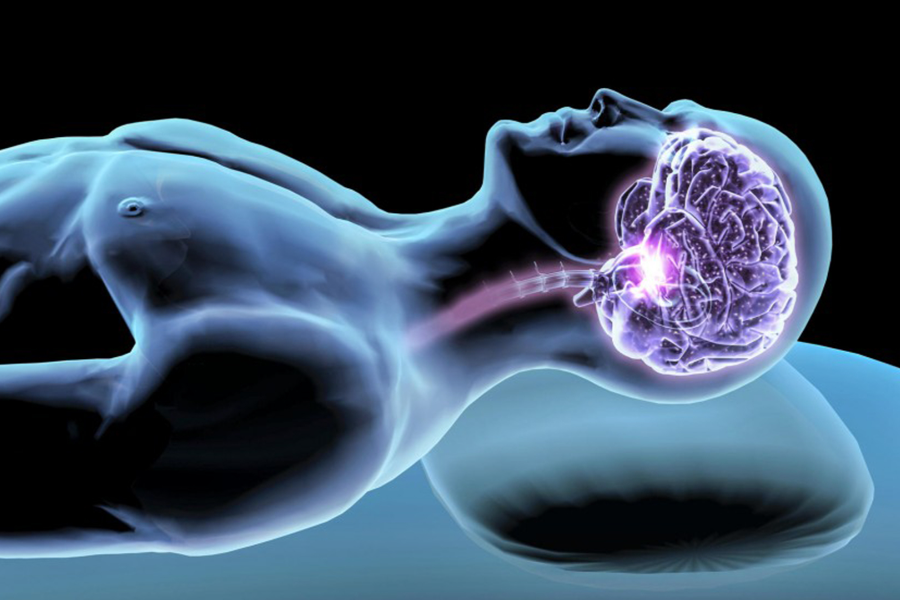A pilgrimage is a beautiful journey that brings people closer to their faith, their purpose, and their inner peace. Whether someone is performing Umrah, Hajj, or any long spiritual journey, the experience can be physically demanding. Pilgrims walk long distances, spend hours in prayer, navigate large crowds, and deal with changes in climate, routine, and environment. In the middle of all this, maintaining good physical health becomes essential to stay comfortable and focused during worship.
Good health on a pilgrimage depends on three major pillars. These include staying hydrated, sleeping properly, and managing steps or physical movement throughout the journey. Many travellers who book Easter Umrah Packages also focus on these areas to stay comfortable during the trip. Each of these elements plays a big role in how the body reacts to travel, heat, long walks, and emotional excitement. When all three are balanced well, the pilgrim feels steady, refreshed, and ready to perform rituals with patience and devotion.
What hydration, sleep, and steps strategy means for a pilgrim

The term hydration simply refers to the body having enough fluids to function normally. On a pilgrimage, especially in a warm climate, the body loses water quickly due to heat, sweat, and physical movement. Drinking water regularly prevents exhaustion, headache, dizziness, and dehydration. Proper hydration also helps the heart, muscles, and mind work smoothly while performing rituals.
Sleep is the next essential factor. Pilgrims often experience disrupted routines, late nights, early mornings, and constant movement. Without enough rest, the body becomes tired, mood can change, and the ability to focus during worship reduces. Quality sleep helps in muscle recovery, mental clarity, emotional balance, and overall strength.
Understanding the steps strategy for pilgrims
A steps strategy refers to planning how many steps or how much physical activity a pilgrim will do each day. Because pilgrimage requires a large amount of walking, a clear strategy helps the body adjust to long distances without sudden strain. Planning steps also prevents injuries, muscle fatigue, and sudden burnout. When the body builds stamina slowly and steadily, the pilgrim completes the journey with more comfort.
Pilgrims who understand these three pillars early can avoid many common problems. Dehydration, poor sleep, and overexertion are among the top causes of illness during pilgrimage seasons. A balanced approach to hydration, sleep, and daily movement supports both physical and spiritual well-being. It turns the journey into a healthier, smoother, and more meaningful experience.
Importance of hydration during pilgrimage
Hydration is one of the most important health priorities for every pilgrim. The environment is warm, the walk is long, and the body constantly works throughout the journey. When the body does not receive enough water, it cannot maintain normal functions, causing tiredness, loss of focus, headaches, and heat-related issues. Pilgrims who stay hydrated experience more energy, better comfort, and improved ability to perform rituals without feeling overwhelmed.
Water supports nearly every function in the body. It helps regulate temperature, supports muscles, improves blood flow, and keeps the mind alert. Because pilgrimage includes Tawaf, Sa’i, long walks, and standing for extended periods, the body needs reliable hydration to handle these tasks without pressure. Drinking water regularly helps in avoiding heat stress, muscle weakness, and dizziness.
Why environment increases hydration needs

Pilgrimage takes place in a climate that is often warm or hot. Even in cooler months, physical movement and large crowds create heat around the body. As a result, the body loses water through sweat faster than regular routines. If this lost water is not replaced, dehydration develops quickly. This makes hydration a constant requirement throughout the journey, not just during rituals.
Crowds also make people sweat more. The movement of thousands of pilgrims in close spaces increases the overall temperature. This raises the body’s need for water even more. This is why carrying a water bottle or drinking frequently becomes essential. Hydration is not a one-time act. It is a steady practice throughout the day.
Understanding the importance of rest and sleep
Sleep plays a major role in keeping the pilgrim strong. When the body sleeps, it heals and repairs itself. Muscles recover from walking, the mind relaxes from long hours of focus, and the heart slows down to reset itself. Sleep protects the immune system and helps the pilgrim stay healthy throughout their journey.
A lack of sleep affects decision-making, focus, and emotional stability. Pilgrims who do not rest properly may become irritable, stressed, or overwhelmed. Fatigue also increases the chance of physical injury during walking or climbing stairs. When the pilgrim respects their body’s need for sleep, they perform rituals with patience and clarity.
Why sleep becomes difficult during pilgrimage
Many pilgrims struggle to sleep well during their journey. The environment is new, prayer times change, crowds move at late hours, and accommodations may not be as quiet as at home. Sometimes pilgrims stay awake out of excitement or fear of missing prayer opportunities. All these things reduce the length and quality of sleep.
Travel itself causes sleep disturbances. Jet lag affects people who travel across time zones. New beds, different room temperatures, and unusual noises also interrupt rest. When sleep changes, the body becomes tired faster. This makes it even more important to plan sleep carefully and give the body the rest it deserves.
What the steps strategy includes

A steps strategy is not about limiting movement but about managing it wisely. Many travellers booking Umrah Packages UK also prepare for this by gradually increasing their daily walking routine. Pilgrims walk much more than they normally do, and this sudden increase can shock the body. Planning steps helps the legs, heart, and back adjust slowly to new levels of activity. It helps prevent injuries like joint pain, muscle cramps, and foot swelling.
Steps strategy also helps in maintaining consistent energy. Instead of exhausting all strength in one day, pilgrims distribute their activity across multiple days. This helps them stay comfortable throughout the pilgrimage without feeling worn out. A steady pace supports a steady mind, and both are important for meaningful worship.
Why the body needs gradual movement adjustments
Most pilgrims come from daily routines that include far fewer steps. Even active individuals see a big increase in movement during pilgrimage. This sudden jump causes strain that could have been avoided with simple planning. The body responds better when movement increases gradually rather than sharply.
When pilgrims use a steps strategy, they build stamina step by step. Their breathing improves, muscles strengthen, and joints adjust to extra pressure. Proper movement planning protects the body from sudden shocks. It creates a healthy balance between worship and physical comfort.
How hydration supports energy and comfort
Water helps transport nutrients, regulate body temperature, and supply oxygen more efficiently. When the body is well-hydrated, blood flows smoothly, supporting organs and muscles during long hours of walking. Hydration also helps digestion, reduces fatigue, and improves stamina. Pilgrims who stay hydrated feel lighter and more energetic.
Hydration also protects the body from overheating. When sweat evaporates, it cools the body down. Without enough water, this cooling system does not work well. This can lead to heat exhaustion or heat stroke. Drinking regularly keeps the body safe from heat-related complications, especially during peak hours of rituals.
How sleep strengthens physical and mental abilities

A well-rested pilgrim can handle physical activity better. Muscles recover faster, and endurance improves naturally. Sleep strengthens the immune system, protecting the body from illness caused by fatigue or stress. A healthy sleep routine reduces irritability and increases concentration during prayers.
Emotionally, proper sleep keeps the pilgrim calm. It helps in handling crowds, long lines, and unexpected changes in schedule. Because pilgrimage involves spiritual dedication, emotional balance is important. Good sleep creates a peaceful mind, making worship deeper and more focused.
How steps strategy prevents exhaustion
When pilgrims pace their movement, they avoid burnout. The body needs time to adapt to new walking patterns and distances. A steps strategy helps in breaking the day into manageable sections. This prevents overwhelming tiredness that could affect rituals later in the day.
Planning the number of steps or walking periods also reduces injuries. Gradual movement protects the knees, ankles, and lower back. Muscles become stronger over time with steady walking. This makes rituals like Tawaf, Sa’i, and regular prayers more comfortable and less painful.
Benefits of hydration for heart, muscles, and brain
Hydration helps the heart pump blood more efficiently. When the body lacks water, the heart works harder to circulate blood. This increases fatigue and reduces energy levels. Staying hydrated gives the heart less pressure and helps maintain normal rhythm.
Muscles also rely on water to move smoothly. Proper hydration reduces cramps, stiffness, and soreness. A hydrated body moves gracefully and responds better to long walking sessions. The brain benefits too, as water helps maintain focus, decision-making, and emotional balance.
Benefits of sleep during a spiritual journey

Sleep gives the pilgrim a natural reset every night. It calms the nervous system and rebuilds mental strength. Without sleep, even small tasks feel heavy. A well-rested pilgrim wakes up with fresh energy, ready to face prayers, walking, and travel with enthusiasm.
Sleep also improves memory and concentration, helping pilgrims remember dua, remain present during prayer, and stay alert in crowds. Pilgrimage is a journey of the heart and mind, and sleep supports both by restoring clarity and patience.
Benefits of steps strategy for long rituals
A steps strategy helps pilgrims manage long rituals that include hours of walking. It helps maintain endurance so that each day feels easier, not harder. When steps are planned well, the body gains confidence and strength for the next set of rituals.
Many pilgrims experience less leg pain, less foot swelling, and fewer muscle aches when following a steps strategy. It also makes rituals safer, especially for elderly pilgrims or those with medical conditions. Walking becomes a smooth and manageable part of the journey, not a burden.
Combining all three pillars for maximum health
Hydration, sleep, and a well-planned movement strategy work together to keep the pilgrim strong. Many travellers who book London Umrah Deals also try to balance these three pillars for a smoother journey. When one pillar is weak, the others suffer. A tired body needs more water. An exhausted body cannot sleep well. A dehydrated body becomes tired faster. These three areas are deeply connected.
When a pilgrim balances these pillars, the journey becomes smoother. The body works efficiently, the mind stays calm, and worship becomes more fulfilling. This harmony makes the pilgrimage experience meaningful and healthy at the same time.
Making the strategy simple and personal

Every pilgrim is different. Some people walk faster, some sweat more, some sleep lightly, and some need more rest. A healthy strategy must match the individual’s body type, age, and physical condition. Pilgrims benefit most when they listen to their body and adjust hydration, sleep, and steps accordingly.
The core idea is consistency. Small, steady habits support long journeys better than sudden changes. When the pilgrim follows simple routines with commitment, the experience becomes peaceful and comfortable.
Conclusion
The Healthy Pilgrim approach focuses on balancing hydration, sleep, and steps. These three pillars support physical strength and spiritual calm. When a pilgrim drinks enough water, sleeps properly, and plans their movement wisely, the journey becomes easier, safer, and more meaningful. This strategy creates a strong foundation for worship and ensures that the pilgrim returns home with good health and beautiful memories.
Sources
-
Health & Medication guidelines for pilgrims (Hajj & Umrah Planner).
-
Official pilgrim health guidelines from the ministry of health in Saudi Arabia.
-
“Health and Well‑Being During Umrah Travel” guide.





